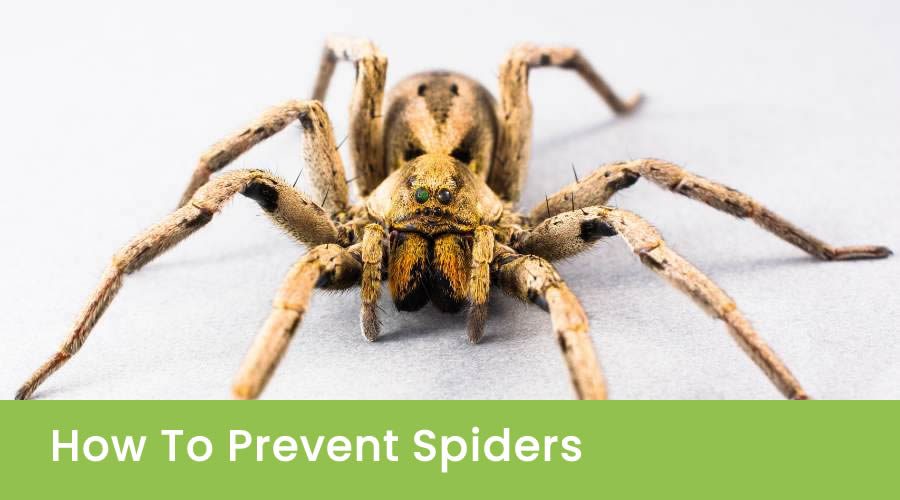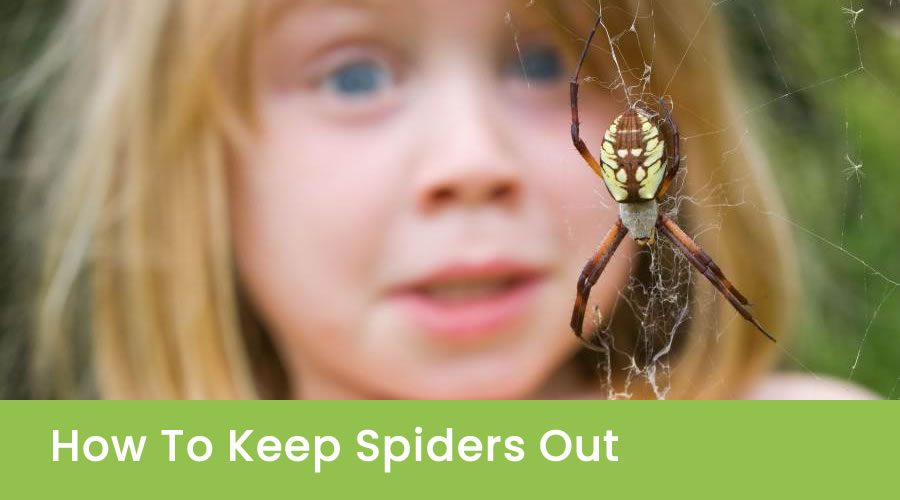How to Prevent Spiders Around the House
Keep Them Out of Your House

Are you seeing more spiders in and around your home lately? You’re not alone.
Spiders often move indoors during the colder months seeking shelter and food. While most household spiders are harmless, no one wants cobwebs and creepy crawlers invading their personal space.
This article shares 8 natural ways to deter spiders without using chemicals.
Why Keep Spiders Out?
Before getting into prevention methods, you may wonder why bother keeping spiders away? Here are some top reasons:
- Bites – Some spiders like black widows and brown recluses can inflict painful, medically significant bites
- Allergies – Spider and web particles can trigger allergic reactions in sensitive individuals
- Messy Webs – Cobwebs collecting dust and debris can look unsightly
- Prey Lures – Spiders prey on flies, roaches and other household pests you likely want to keep out too
While spiders play an important role controlling insects outdoors, inside most homes they become unwelcome guests. Luckily there are several natural ways to deter them without toxins.
8 Natural Ways to Prevent Spiders at Home
1. Remove Food Sources
Spiders don’t subsist on much inside your home. But they do need some victuals and water to survive. Be diligent about:
- Vacuuming up any organic debris like dead insects
- Cleaning up crumbs and spills
- Storing human and pet food in sealed containers
- Fixing plumbing leaks spiders may drink from
By removing indoor nutrient providers, sends the message that your home is inhospitable.
2. Manage Clutter
Hoarder houses are spider heaven with endless nooks to hide. But even tidier homes can attract spiders with:
- Stacks of storage boxes
- Overflowing closets
- Cluttered basements and garages
Spiders scout out undisturbed areas to build nests and lay eggs. Institute a regular decluttering system and organise storage areas to eliminate appealing harborage.
3. Seal Up Entry Points
Some clever spiders find ways to sneak inside through cracks and gaps. Check areas where utilities enter the home, like:
- Pipe penetrations
- Open chimneys
- Gaps around windows or doors
Caulk, spray foam, weather stripping and door sweeps can close off openings cutting off access. Pay special attention to basements and attics which often have more points of entry.
4. Install Lighting
Spiders avoid well-lit areas. Position lighting to shine on probable entryways like porch ceilings, garage doors, basement, and air vents.
Powerful LED bulbs work well and last ages. Put lights on timers or sensors to automatically turn them on at dusk when spiders like to explore.
5. Remove Hiding Spots
Spiderwebs frequently appear in unused corners, behind furniture and underneath sinks. Discourage them by:
- Moving furnishings away from walls/ceilings
- Routinely sweeping under appliances
- Clearing storage areas of unused items
- Keeping plants trimmed away from buildings
Fewer secluded harborage spots sends the message that your home doesn’t accommodate spiders.
6. Use Natural Repellents
Some herbs, oils and extracts bugs hate but won’t harm children or pets. Try these DIY spider deterrents:
- Cotton balls soaked with peppermint oil or citrus oils
- Vinegar or lemon juice sprayed along baseboards using spray bottle
- Dried lavender flowers or eucalyptus bundles
- Small cedar wood pieces or cedar wood hangers placed around problem areas
- Chestnuts placed in problem areas around the home
Strategically place natural spider repellents around possible entry sites. Their strong scents overwhelm spider chemical receptors. Reapply after cleaning or rains.
7. Encourage Natural Predators
Besides humans, spiders have other natural enemies:
- Birds – Especially swifts, sparrows and nuthatches
- Lizards – Geckos and similar small reptiles
- Wasps – Certain mud dauber wasps paralyze spiders to feed larvae
Attract helpful predators by landscaping with native plants they use for comestibles and shelter. Also provide bird houses, bat boxes and insect hotels suitable for your climate.
8. Vacuum Regularly
Use a powerful vacuum cleaner with hose attachments to remove:
- Spider webs
- Egg sacks
- Live spiders
Pay special attention to corners, baseboards, vents, panes and ceilings where spiderwebs accumulate. Spread a natural repellent where you find webs to further discourage spiders from returning.
Vacuuming spiders can seem harsh. But it’s an non-toxic method that’s more humane than many chemical deterrents. Just remember to empty the vacuum bag or container outdoors immediately after to prevent any spider escapes.
Fun Fact: Use Music as a Repellent
Research shows certain types of music and sounds drive spiders away. Prevailing theories suggest the vibrations interfere with web building and sensing prey.
Effective spider-repelling music includes:
- Classical compositions with higher 75-80 Hz frequencies
- Electronic dance music with heavy bass
- Continuous white noise or static
Next time you spot more spiders, try placing speakers in problem areas and playing annoyance-inducing mixes. Just be aware it may start to bug you over time too.
Final Thoughts

Hopefully this article provided some helpful tips on keeping spider sightings and messy cobwebs out of living spaces. Most prevention steps focus on smart maintenance and decluttering. So they provide bonus benefits beyond just deterring spiders!
Gentle, non-toxic methods that focus on smart exclusion work best. And one can always appreciate how amazing spiders are when viewed OUTSIDE where they belong.
Humans can co-exist with 8-legged friends as long as measures like sealing up entry points keep everyone to their proper places.


